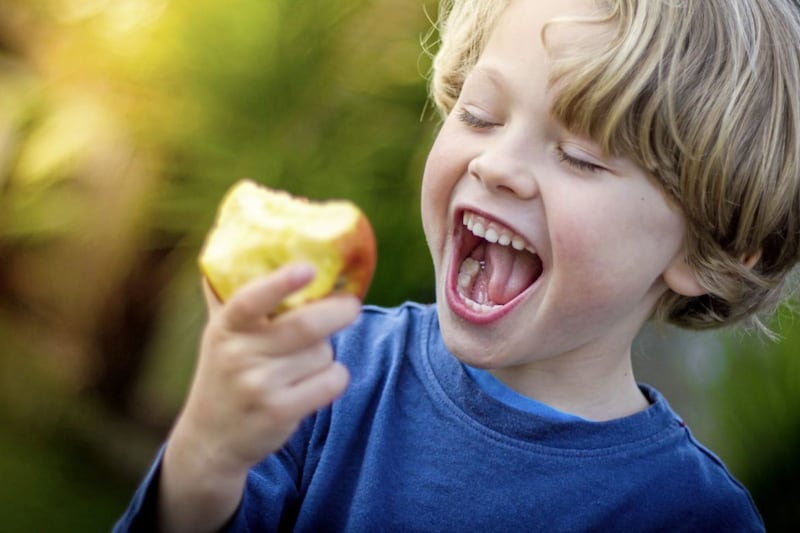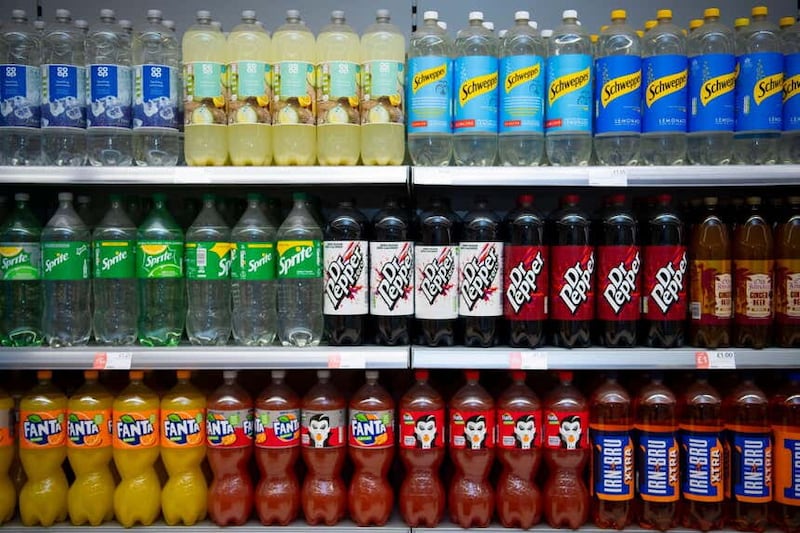SO, THE sugar tax is here. Last week saw the introduction of a UK-wide levy on soft drinks, with the aim of tackling childhood obesity. This has encouraged many of the soft-drink manufacturers to change their recipes to create a lower sugar alternative.
What is the sugar tax?
The UK government has introduced a two-tier tax on soft drinks. The higher rate of 24p per litre is added to drinks with 8g of sugar or more per 100ml and 18p per litre is added to drinks with a total sugar content of 5g or more per 100ml. Milk-based drinks (including sugar-laden milkshakes) and fruit juices are exempt, even though they can also be high in sugar.
The Republic will follow suit with its version of a sugar tax in the coming months.
Sugar replacements
With the new tax, most soft drinks manufacturers have replaced sugar with artificial sweeteners. As consumers, when we read the label and see that our favourite drink is now a new and improved ‘lower sugar’ or ‘sugar-free’ version, we instinctively think we are doing something positive for the good of our health. Most of us don't look at the table closely enough to check out what they have replaced the sugar with.
Sweeteners such as saccharin, sucralose, aspartame and the natural sweetener stevia are found in most low-sugar or ‘diet’ drinks and have been creeping their way into ‘normal sugar’ foods and drinks, so many of us are eating them without realising it.
The health effects
There have been various heath concerns about artificial sweeteners over the years, with plenty of scare stories about their effects on our health. From potential links to type 2 diabetes and weight gain to cardiovascular health and cancer, the research is inconclusive and inconsistent.
Whether these sweeteners are safe depends on our definition of safe. Most studies have ruled out cancer risk when consumed at a low level. What we don’t know is the effect that large amounts of these chemicals will have over many years.
We know that artificial sweeteners can be hundred of times sweeter than sugar, affecting our perception of how sweet a food should really be. When we get used to these highly sweetened foods and drinks, natural sweetness from foods such as fruit becomes less appealing, making us move towards a more unhealthy option to satisfy that urge for a sweet hit.
Studies also show that artificial sweetens can make us fat. One study found that people who drank more than 21 diet drinks per week were twice as likely to become overweight or obese as people who didn’t drink diet drinks.
Solving the obesity problem
One thing there is no doubt over is that we are in the midst of an obesity epidemic. The problem is a tricky one to solve, but our sweet tooth has a lot of answer for. If we can make a few small changes in our diet to shift our attention away from the need for highly sweetened foods to more naturally sweet foods instead, we will notice a difference to our waistlines.
Naturally sweet foods tend to be packed with nutrition, high in fibre with a low GI, compared to the nutrient-void processed foods we crave. Instead of satisfying that craving with high-calorie sugary foods, or low calorie foods packed with chemicals like aspartame, let’s start making better choices for the good of our health.
Tip of the week
The next time you feel the need for a sugary drink, do yourself a favour and rehydrate with pure, fresh water instead. Grab a piece of fruit instead of a chocolate bar, or opt for natural yoghurt over a flavoured one.








